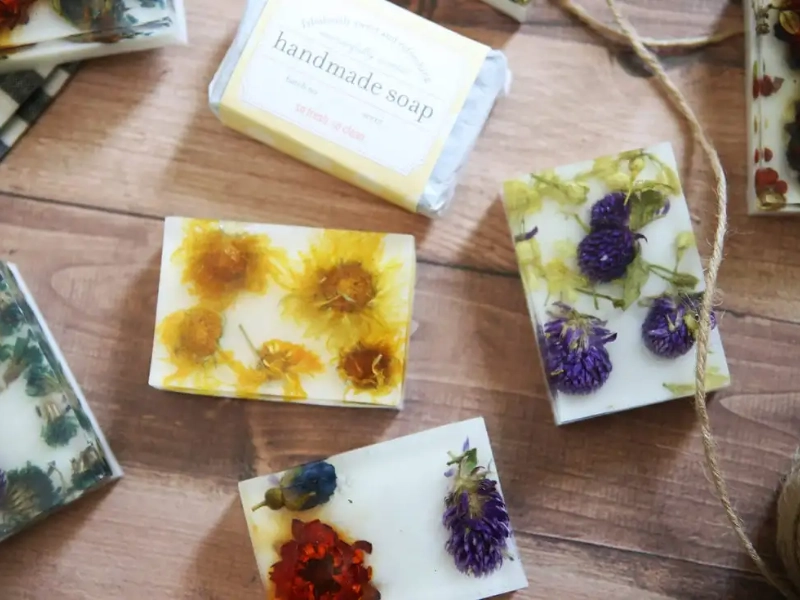Unlock Better Sleep: The Soap Secret Nobody's Talking About
Advertisement
4. The Science Behind the Soap: What Research Says

Advertisement
Although word-of-mouth recommendations and anecdotal data have helped the soap sleep trick become well-known, the scientific world has not yet completely embraced or explained this unusual approach. That does not mean, nevertheless, that some of the claimed advantages have no scientific foundation. Let's investigate the possible pathways behind the soap trick and associated sleep enhancement techniques based on present studies.
First of all, it is noteworthy that no comprehensive, peer-reviewed research especially looking at the impact of sleeping with soap on sleep quality exists. Many medical professionals still have doubts regarding the technique mostly because of this dearth of direct evidence. Still, some of the ideas suggested to explain the efficacy of the soap trick have scientific support in relevant fields.
The part magnesium plays is among the most often mentioned reasons the soap technique may work. Often found in soap, magnesium is a mineral absolutely vital for muscle and nerve action. Particularly in those with magnesium shortage, some research have indicated that magnesium supplements can help to enhance sleep quality. In older participants with insomnia, magnesium supplements lengthened sleep time and improved sleep efficiency, according a 2012 study written up in the Journal of Research in Medical Sciences.
Still, these investigations included oral magnesium supplements rather than topical administration using soap. Particularly when not in close touch, the amount of magnesium that might possibly be absorbed via the skin from a bar of soap is probably negligible. This calls the magnesium theory some doubt in terms of explaining the claimed advantages of the soap technique.
Another scientifically acknowledged phenomena that might help to explain some of the advantages claimed by soap trick users is the placebo effect. Many research have shown the potency of the placebo effect in several health settings, including sleep. According to a 2007 study written for the journal Sleep Medicine, patients with insomnia may have far better subjective sleep quality on a placebo than otherwise. This implies that the conviction in the efficacy of the soap trick can by itself result in actual improvements in the quality of sleep.
More research has gone into the part aromatherapy plays in helping one fall asleep. Many soap users find greater benefits with scented soaps, especially ones including lavender. According to a 2015 systematic study written for the Journal of Alternative and Complementary Medicine, lavender essential oil might help many people have better quality of sleep. Although the aroma of a bar of soap would be far less strong than that of essential oil, this study supports the theory that nice, relaxing smells can help one have better sleep.
Some supporters of the soap trick propose that it might operate by generating a tiny electrical charge affecting surrounding muscles and nerves. Although this particular assertion is not supported by any data, studies on the use of electrical stimulation for betterment of sleep exist. Published in the journal Sleep, a 2019 study indicated that transcranial alternating current stimulation may increase slow wave activity during sleep, therefore increasing the quality of the sleep. Still, the electrical current employed in these experiments is far stronger and more focused than any charge soap in a bed could create.
Some scientific research has looked at the idea of "earthing," or "grounding," which some link with the soap trick. Grounding the human body during sleep could lower night-time cortisol levels and enhance sleep, according to a 2015 study written for the Journal of Inflammation Research. This study is still regarded as preliminary, though, and the link to sleeping with soap is yet hypothetical.
The soap trick's ceremonial component fits accepted ideas of good sleep hygiene. Many studies have found that regular bedtimes help to improve sleep quality. Particularly in toddlers but also in adults, a 2018 review in Sleep Medicine Reviews underlined the need of nighttime rituals in fostering adequate sleep. using acting as a sleep-signaling ritual, washing the bed every night might help to promote sleep using this process.
Although not directly related to soap, studies have indicated that sleep quality can be affected by minute ambient elements. Little variations in bedroom temperature could have a major impact on sleep quality, according to a 2017 study written up in the journal Sleep Health. This implies that elements we would not instantly regard as important could affect our sleep, thereby supporting some validity for the theory that something as basic as a bar of soap might have an effect.
It's important to remember that the lack of scientific research especially on the soap sleep method does not always indicate it's useless. Many prevalent treatments and therapies begin with anecdotal evidence then undergo thorough scientific investigation. The soap trick's ongoing popularity as well as the abundance of favourable anecdotal evidence point to perhaps further research worth looking into.
In essence, even if the scientific data explicitly supporting the soap sleep method is lacking right now, some of its claimed advantages could be explained by theoretically grounded ideas. Especially pertinent are the possible functions of aromatherapy, regular bedtimes, and the placebo effect. Future studies may offer more specific justifications for the apparent efficacy of the soap technique as sleep science develops. Until then, the soap sleep trick is still a fascinating illustration of how unusual approaches may occasionally result in apparent changes in sleep quality even if the fundamental processes are not entirely known.
Advertisement
You May Like

